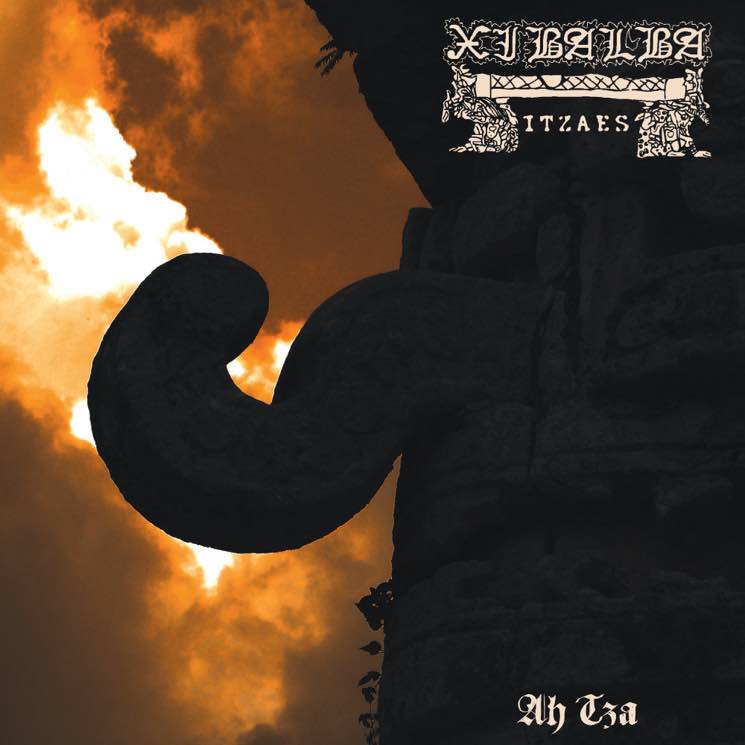Mayan black metal band Xibalba, also known as Xibalba Itzaes (and not to be confused with California-based extreme metal band Xibalba, though both groups have named themselves after the word for the Mayan underworld, which translates to "the place of fear"), have had a career that is not unlike the life cycle of a periodical cicada.
After releasing some demos in the very early '90s and a debut full-length, Ah Dzam Poop Ek, in 1994, the group burrowed underground for 14 years, emerging with new demos in 2010 and now, once again, with a three-song EP. Influenced directly by the pagan mythology surrounding the Mayan concept of the afterlife and underworld, Ah Tza! explores the ancient South American culture's concept of hell.
While most western ideas of hell are of a fiery torture cavern, the Mayan underworld was a watery grave. The record strives to evoke this with sense of loss and isolation in the quick, chaotic song structures. It isn't physical pain that is conjured so much as loneliness and fear — a sharp, cold, psychic torment. The third track on the EP (also the most deliberately constricting and methodically paced) is the catchiest, as inexorable as the trip one's soul takes across the dread river to the afterlife.
The raw production has an echoing, waterlogged edge, making the guitars echo like cries off cavern walls. While it's not the most original black metal in the world, it certainly is novel, and an unexpectedly eloquent tribute to being dragged to your eternal doom.
(Nuclear War Now!)After releasing some demos in the very early '90s and a debut full-length, Ah Dzam Poop Ek, in 1994, the group burrowed underground for 14 years, emerging with new demos in 2010 and now, once again, with a three-song EP. Influenced directly by the pagan mythology surrounding the Mayan concept of the afterlife and underworld, Ah Tza! explores the ancient South American culture's concept of hell.
While most western ideas of hell are of a fiery torture cavern, the Mayan underworld was a watery grave. The record strives to evoke this with sense of loss and isolation in the quick, chaotic song structures. It isn't physical pain that is conjured so much as loneliness and fear — a sharp, cold, psychic torment. The third track on the EP (also the most deliberately constricting and methodically paced) is the catchiest, as inexorable as the trip one's soul takes across the dread river to the afterlife.
The raw production has an echoing, waterlogged edge, making the guitars echo like cries off cavern walls. While it's not the most original black metal in the world, it certainly is novel, and an unexpectedly eloquent tribute to being dragged to your eternal doom.
